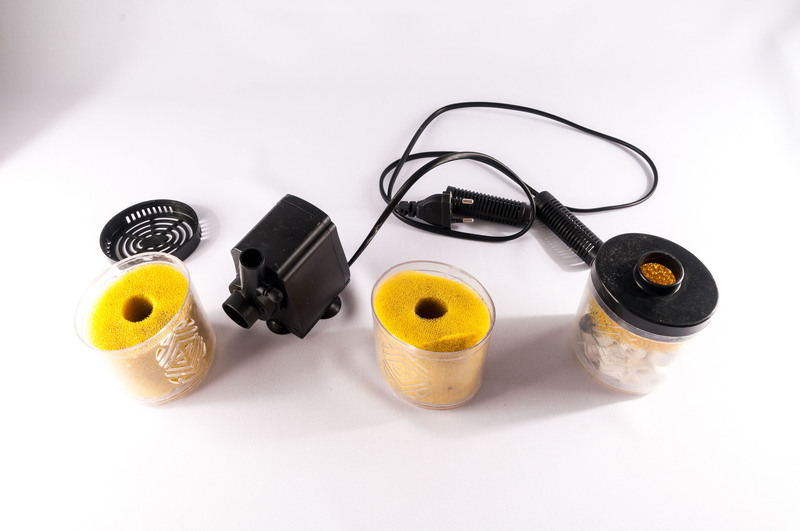Prolong the Life of Your Freezer with Proper Storage
Posted on 18/05/2025
Prolong the Life of Your Freezer with Proper Storage: Essential Tips and Strategies
If you've invested in a freezer, whether it's a compact chest freezer for apartment living or a spacious upright model for large families, you already know the value it brings in storing food for the long term. However, *prolonging the life of your freezer* requires more than simply plugging it in and filling it up. With proper storage techniques, you can optimize efficiency, decrease energy costs, and even extend the lifespan of your appliance. Let's explore the best ways to care for your freezer and maximize its performance through smart storage practices.

Why Proper Freezer Storage Matters
Your freezer is a silent guardian of your groceries, keeping foods preserved and reducing waste. However, many people underestimate how significantly storage habits impact the machine's life and the quality of their foods. From cycles of frost build-up to overworking the compressor, improper storage can lead to inefficiency, frequent breakdowns, and even spoiled food.
- Energy Efficiency: Well-organized freezers use less energy and experience less "cold escape" when you open them.
- Consistent Food Quality: Good storage practices prevent freezer burn and maintain the taste, texture, and nutrition of your items.
- Extended Appliance Longevity: Minimizing wear and tear on the internal mechanisms can add years to your freezer's life.
- Reduced Repair Costs: Fewer breakdowns mean fewer costly repairs or premature replacements.
Preparing Your Freezer for Efficient Storage
1. Clean and Defrost Regularly
*Freezer maintenance* is crucial. Before stocking up on groceries, clean the interior thoroughly using a mild solution of water and vinegar or baking soda. If there's any frost build-up, defrost the unit to maximize storage space and improve airflow.
- Unplug the freezer or switch it off.
- Remove all items.
- Let the frost melt; use warm towels to expedite the process.
- Wipe all surfaces dry before plugging back in.
Tip: Many modern freezers have auto-defrost, but even then, a periodic manual check can help ensure optimal performance.
2. Check the Door Seals and Gaskets
A damaged or loose door seal allows cold air to escape, forcing your freezer to work harder. This not only increases energy consumption but can also lead to temperature fluctuations that harm your food. Make it a habit to inspect the seal regularly, cleaning it with a damp cloth and replacing it if it shows signs of wear.
Organizing Your Freezer for Peak Performance
1. Avoid Overpacking (But Don't Underfill!)
For your freezer to operate at peak efficiency, it needs the right balance:
- Overpacking: Blocks air circulation, resulting in uneven cooling and potential spoilage.
- Underfilling: Causes more air to enter, forcing the freezer to work harder to maintain temperature after you open the door.
The best practice is to keep your freezer around 75-85% full. If you have excess space, fill empty milk jugs with water and freeze them--they'll help maintain the cold environment without wasting energy.
2. Use the Right Containers and Bags
Not all packaging is created equal for freezer storage. Opt for
- Heavy-duty freezer bags (labeled as such)
- BPA-free plastic containers designed for freezing
- Vacuum-sealed bags
- Aluminum foil tightly wrapped around foods (for items like meats and baked goods)
Pro Tip: Avoid glass containers unless they're specifically marked as freezer-safe, as they may crack with temperature fluctuations.
*Remove as much air as possible* from bags before sealing to prevent freezer burn. Label and date every item for easy identification and rotation.
3. Store Smartly by Category
Organize your freezer in zones or with baskets for easy access and better airflow:
- Top Shelf: Ready-to-eat meals, ice cream, and fast-access snacks
- Middle Shelf: Vegetables, fruits, and bread
- Bottom Shelf: Raw meats and fish (to avoid drips or cross-contamination)
- Door Racks: Items with a shorter freezer life, such as nuts or butter
Keeping similar items together ensures you spend less time searching--and less time with the door open, which helps preserve your freezer's efficiency.
The Best Practices to Extend Your Freezer's Lifespan
1. Keep the Freezer at Optimal Temperature
The ideal temperature for a home freezer is 0?F (-18?C). Setting it colder will not make your food last longer and will increase wear on the components. Invest in an appliance thermometer to occasionally double-check the internal temperature, especially if your freezer is old or often opened.
2. Rotate Stock: First In, First Out (FIFO)
A classic inventory system, "first in, first out," means using older foods before newer ones. This prevents forgotten items from succumbing to freezer burn and helps you avoid overloading the freezer unnecessarily. It's simple:
- Place newly frozen foods at the back or bottom.
- Move older items to the front or top for quicker access.
This also prevents unnecessary digging, making your freezer last longer by reducing the time the door is left open.
3. Minimize Door Openings
Every time you open your freezer, cold air escapes and warm air enters. This makes the motor work harder to restore the set temperature. **Try to plan ahead** when grabbing ingredients or stocking the freezer, and discourage frequent opening for "just browsing."
4. Allow Hot Food to Cool Before Freezing
Placing hot dishes directly into the freezer increases the internal temperature, risking partial thawing of other stored food and overburdening the cooling system. Let hot food cool to room temperature (but no longer than two hours for safety) before placing it in the freezer.
5. Defrost Foods Properly
When it's time to use frozen food, defrost it in the fridge rather than on the counter. This is safer and minimizes temperature fluctuations inside your freezer, helping it work more efficiently.
Common Mistakes That Shorten Freezer Life
Even with the best intentions, common storage mistakes can reduce the lifespan of your freezer. Are you guilty of any of these?
- Storing warm or hot items directly inside
- Using thin, non-freezer-safe bags leading to freezer burn and leaks
- Neglecting to clean and defrost when needed
- Packing food too tightly around the vents
- Not labeling or rotating stock, causing forgotten items to spoil
- Ignoring weird noises or persistent frost build-up (indicative of mechanical issues)
Address these mistakes early to prolong your freezer's life and keep your foods fresh.
How to Store Specific Foods for Maximum Freshness
1. Meats and Fish
- Wrap tightly in multiple layers (plastic, then foil, then freezer bag).
- Mark with the freeze date.
- Store at the coldest section, usually the bottom or back.
2. Fruits and Vegetables
- Blanch vegetables before freezing to retain color, nutrients, and texture.
- Use rigid containers or heavy-duty freezer bags.
- Spread fruits on a tray to freeze individually before transferring to bags to prevent clumping.
3. Baked Goods and Bread
- Wrap tightly to keep out air and prevent dryness.
- Slice before freezing for easier access to portions.
- Use within 3-6 months for best quality.
4. Dairy Products
- Wrap cheese in parchment and then plastic before freezing.
- Freeze milk in small portions, leaving room in containers for expansion.
- Avoid freezing cream-based sauces, which can separate.
Preventative Maintenance for a Long-Lasting Freezer
1. Clean Condenser Coils
Every 6-12 months, unplug your upright freezer and gently vacuum or brush away dust from the condenser coils, located at the back or bottom. Dust build-up makes your freezer less efficient and can shorten its lifespan.
2. Level It Up
An unleveled freezer causes the door seal to work improperly, leading to cold air leaks. Use a carpenter's level and adjust the feet until the freezer is perfectly flat.
3. Ensure Proper Airflow Around the Appliance
Maintain at least 2-3 inches of space between the back/sides of the freezer and the wall. This allows for adequate ventilation, reducing overheating and wear on the mechanics.

Signs Your Freezer Needs Attention
Even with ideal storage, freezers occasionally signal for service. Watch for these signs:
- Frost build-up despite regular defrosting
- Food not freezing completely or thawing unexpectedly
- Unusual noises (buzzing, clicking, or knocking)
- Excessive condensation inside or outside the unit
If you notice any of these, take prompt action--address small issues before they become costly problems, protecting both your food and your investment.
Final Thoughts: Enjoying Years of Freezer Reliability
With *proper storage practices*, you can prolong the life of your freezer, saving money and reducing waste for years to come. By keeping your appliance clean, organized, and well-maintained, you'll ensure both food safety and energy efficiency. Remember: great freezer care starts with *mindful storage*, so turn these simple tips into lifelong habits for optimal results.
For more home appliance tips, cleaning hacks, and organization strategies, stay tuned to our blog. Share your own freezer care experiences or questions in the comments below!
Latest Posts
Sofa Longevity Secrets: Expert Storage Tips Disclosed
Unveiling the Secrets to an Effective Move-Out Clean
Why You Should Reconsider DIY Piano Transport



